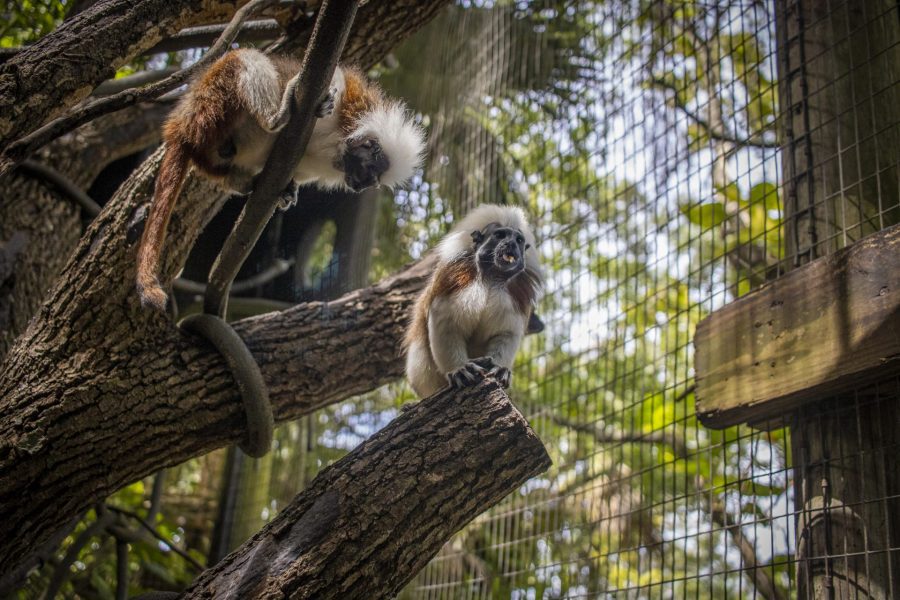

Our cotton-top tamarins, Luna and Cricket, are now first-time parents to three infants!
Editor’s note: Although our cotton-top tamarins were originally the parents of triplets, we are saddened to share that one of their infants has passed away. This story has been edited to reflect this. To learn more about the infant’s passing, please read this blogpost.
If good things come in small packages, we are especially lucky with our latest baby announcement.
Our cotton-top tamarins, Luna and Cricket, are now first-time parents to two newborns! This pairing was a recommendation by the Association of Zoos and Aquariums’ Species Survival Plan (SSP) for their species. SSP’s are designed to manage the populations of animals within AZA-accredited zoos to ensure healthy, genetically diverse populations.
Luna does have help from dad Cricket – in this species, males as well as other family members help care for the young. He’s been carrying at least one of the babies since their birth. The babies appear healthy and have been seen nursing.
Cotton-top tamarins are some of the most endangered primates in the world. Their critically endangered status is due to their exploitation in the illegal pet trade and the substantial loss of their tropical forest habitat in Colombia for cattle ranching, agriculture, and urban development. About 2,000 adult cotton-top tamarins remain in the wild.
The infants were born overnight on Nov. 5. Keepers knew Luna was pregnant by carefully monitoring her weight and then doing an ultrasound when they noticed a steady weight gain.
Cotton-top tamarins are a sensitive species and very territorial. Their nature coupled with the stress of the responsibility for caring for these infants led us to delaying this announcement or taking photos of the infants.
Their Rainforest Revealed habitat was closed to public view for the past week. While the tarp blocking the view into their habitat has been removed, our animal staff is asking guests to take care while getting close to the habitat. Someone staring too long, banging on the glass or being loud could cause the family stress.
Although the potential for Luna and Cricket to reject a baby has diminished, it is still possible. Keepers would try to encourage Luna and Cricket to take back any rejected infant, but at this point, keepers could not intervene and hand-rear the baby. The parents would not accept the infant – and the hand-raised infant would eventually become aggressive to people and other monkeys.
Keepers have been leaving food and getting a quick look at the family to ensure all is well. Cricket and Luna have just started relaxing and accepting food from them again. The family will continue to be closely monitored to ensure their health and safety.
Brevard Zoo is an independent, not-for-profit organization that receives no recurring government funding for our operating costs. Your generous support enables us to continue to serve our community and continue our vital animal wellness, education and conservation programs.
